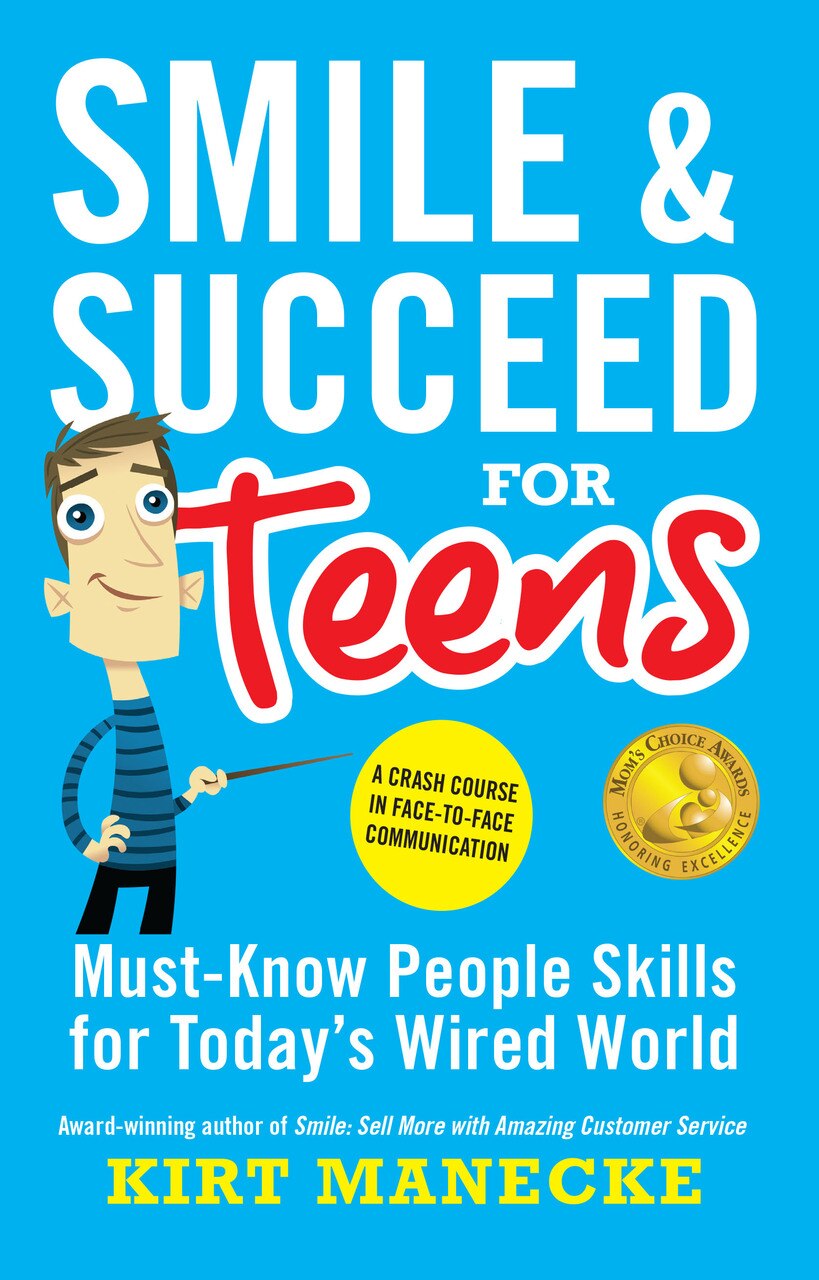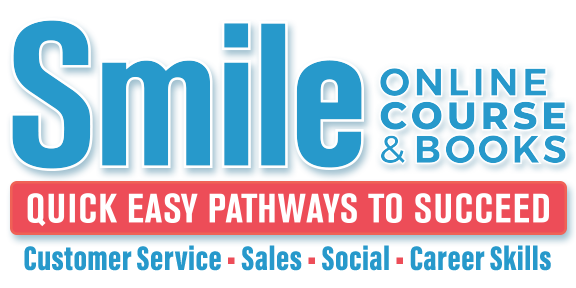FREE social and career skills resources

HELPFUL QUESTIONS TO ASK WHEN YOU FIRST MEET SOMEONE
This FREE page of communication tips for teens is part of the award-winning book
Smile & Succeed for Teens: Must-Know People Skills for Today's Wired World.
JOB-SEEKING WEBSITES
Career Exploration and jobs
networking
cOVER LETTER and RESUME
references
job interviews
RESUME TIP
If you are a member of any school programs such as DECA, BPA, VEI, HOSA, Skills USA, National Honor Society, etc., be sure to list these on your resume. Also add any volunteer activities on your resume.
HOW TO MAKE A FLYER FOR YOUR BUSINESS
HOW TO PROMOTE YOUR BUSINESS OR EVENT
PRACTICE (MOCK) INTERVIEW QUESTIONS
OVERCOMING STRESS AT HOME
HAVING GOOD FRIENDS TO TALK WITH REDUCES STRESS.
"When you change the way you look at things, the things you look at change."
-Wayne Dyer, author and motivational speaker
- Go to bed early enough to feel rested in the morning.
- Eat healthy foods including breakfast. Include fruits and vegetables. Find affordable or sometimes free food at community sharing and food banks.
- Prioritize your time so you can make room for relaxing activities. Spend time outdoors away from televisions, computers and other digital devices.
- Plan your day so you can get school work done at a comfortable pace.
- Everyone in a family has tasks or chores that need to be done. Understand what yours are and do them regularly and well. (This minimizes any chance you will be yelled at.)
- Volunteer to help when others seem stressed.
- Volunteer for a cause close to your heart.
- Help an elderly neighbor with chores.
- Talk to a trustworthy adult for advice. This may be a parent, grandparent or teacher.
- Smile often, especially at yourself.
- Respect people in your home. This means adults, siblings and guests. Be nice to your parents.
- Take up a new hobby.
- Play a musical instrument.
- Surround yourself with positive friends.
- Walk your dog.
- Don't listen to any negative thoughts in your head. Learn to ignore them.
- Play sports or exercise.
- Meditate and/or do yoga.
- Find the humor in situations and in life.
- Forgive and forget.
- Go to a park and go hiking with your family. Getting out in nature is very relaxing.
- List to music.
- Read.
- Break projects into smaller chunks so they don't seem overwhelming and will be easier to complete.

OVERCOMING STRESS AT SCHOOL
HAVING GOOD FRIENDS TO TALK WITH REDUCES STRESS.
Be prepared and on time to help overcome stress.
- Get to school and class on time.
- Be prepared for the day’s lesson.
- Ask for help with a smile.
- Be courteous to your teachers and they’ll, more than likely, be courteous to you. (Remember, teachers have a home life too!)
- Listen and absorb what you are hearing.
- Ask questions when you don’t understand. Don’t be shy about that. Chances are there is at least one other person in that room with the same question that will be happy you asked.
- Do not procrastinate, especially when completing homework, projects and studying for tests.
- Don’t leave projects to the last minute.
- Avoid getting discouraged and quitting. It’s a bad habit.
- Don’t get wound up in school drama. Make your studies the top priority.

Remember that a certain amount of stress in our lives is good as it motivates us to get things done.
The key is to balance stress so that it does not become overwhelming.
Playing sports is a powerful way to reduce stress. I played hockey when I was in school. The exercise helped me reduce stress and I met
life-long friends. As my skills improved my confidence soared. I felt better about myself. You can do the same with a sport you like!
Wired Tip: The most effective way to solve a problem is to sit down face-to-face. Don’t think that you can solve everything over the phone or on a screen.
"The greatest weapon against stress is our ability to choose one
thought over another."
-William James
AMERICAN PHILOSOPHER AND PSYCHOLOGIST
MORE WAYS TO APOLOGIZE
HOW TO USE THE PHONE
SELLING TIPS
- Always remember that the customer only cares about WIIFM (What’s in it for me?) Listen at least 50% of the time.
- Ask open-ended questions to learn more about your customer's wants and needs.
- Explain the features and benefits of your product or service.
- Remember, “Features Tell, Benefits Sell”.
- Explain how your product or service will meet the needs of your customer.
- Don’t be afraid to ask for the sale.
FUNDRAISING TIPS
- Always remember that the customer only cares about WIIFM (What’s in it for me?) Listen at least 50% of the time.
- Ask open-ended questions to learn more about your donor's wants and needs.
- Tell a quick success story about how your nonprofit has helped one person, one animal, etc.
- Explain the features and benefits of your program.
- Explain how your program will meet the needs of your donor.
- Ask for the donation.

